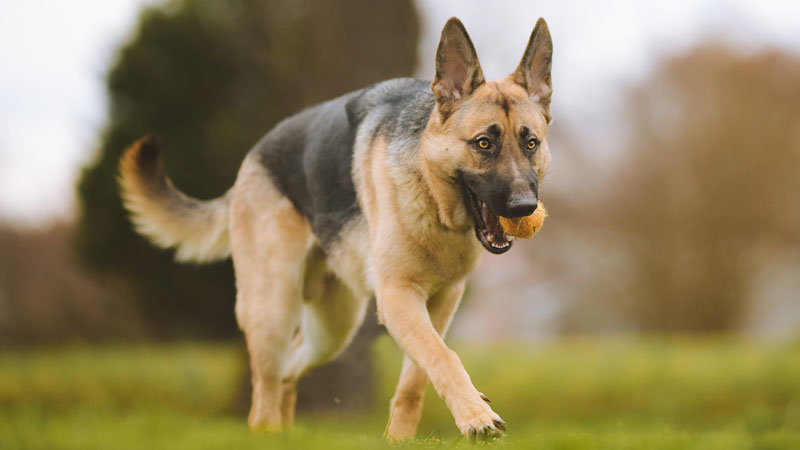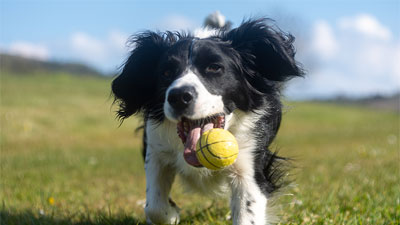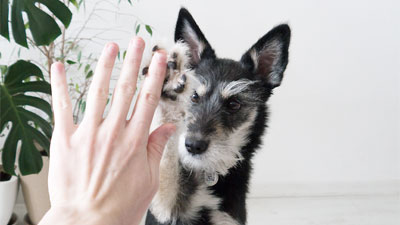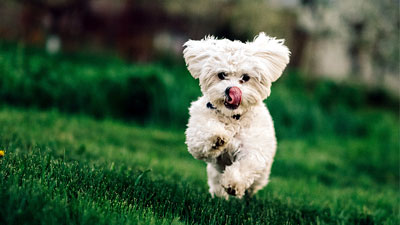- Size
- Smallest
- Small
- Small to Medium
- Medium
- Large
- Giant
- Characteristics
- Smartest
- Hypoallergenic
- Fluffy
- Best Guard
- Best Family
- Best for Kids
- Low Shedding
- Healthiest
- Police Dogs
- Most Calm
- Quietest
- Color
- White
- Black
- Grey
- Brown
- Blue
- Red
- Coat
- Hairless
- Short
- Long
- Origin
- Japan
- China
- Australia
- Germany
- Italy
- United States
- France
- Group
- Hound
- Terrier
- Herding
- Toy
- Working
- Sporting
Do Dogs Learn Fetch Naturally?

Photo by Reba Spike on Unsplash
The image of a dog joyfully retrieving a thrown ball is ingrained in our collective perception of canine companionship. Many assume that fetching is an innate behavior for dogs, but the reality is more nuanced. While some dogs seem to grasp fetch effortlessly, others may need a bit more guidance. In this exploration, we delve into the question: Do dogs learn fetch naturally?
Understanding Canine Instincts
Dogs, with their diverse breeds and backgrounds, exhibit a wide range of instincts and behaviors. Fetching, in its essence, can be linked to certain natural inclinations that dogs possess. Here are some factors that contribute to the perceived fetch instinct:
Retrieving Instinct:
Certain breeds, often categorized as retrievers or gun dogs, have a natural inclination for retrieving. This stems from their historical roles in hunting, where they were trained to retrieve game for hunters. Breeds like Labrador Retrievers, Golden Retrievers, and Springer Spaniels may showcase an inherent interest in fetching.
Predatory Instinct:
In the wild, dogs are predators, and their instinct to chase after moving objects is deeply ingrained. This predatory drive can make the act of chasing and retrieving a thrown object appealing to many dogs.
Bonding and Socialization:
Dogs are pack animals with a strong social structure. Playing fetch mimics a cooperative activity where the dog and the owner engage in a shared task, fostering a sense of camaraderie and strengthening the human-canine bond.
Mental Stimulation:
Fetch is not just physical exercise; it also provides mental stimulation. The act of locating, chasing, and bringing back an object engages a dog's cognitive functions, contributing to their overall well-being.
Do All Dogs Fetch Naturally?
While certain breeds may have a predisposition for fetching, the idea that all dogs learn fetch naturally is a common misconception. Several factors influence a dog's inclination and ability to fetch:
1. Individual Personality:
Just like humans, dogs have distinct personalities. Some dogs are naturally curious, playful, and eager to please, making them more predisposed to fetching. Others may be more reserved or independent, showing less interest in playing fetch.
2. Early Experiences:
Puppies that have positive early experiences with toys and play are more likely to exhibit interest in fetch. Early exposure to different textures, shapes, and sizes of toys can contribute to a dog's comfort and enthusiasm for play.
3. Training and Encouragement:
While certain dogs may display a natural proclivity for fetch, training and encouragement play a crucial role. Positive reinforcement, consistent commands, and rewards can shape a dog's behavior and enhance their ability to fetch.
4. Environmental Factors:
The environment in which a dog is raised can impact their inclination to fetch. Dogs in urban environments may have fewer opportunities for open play, potentially affecting their natural retrieval instincts.
How to Encourage Fetching in Dogs
For those wondering how to cultivate the fetch instinct in their dogs, here are some practical tips:
Choose the Right Toy:
Experiment with different toys to find one that captures your dog's interest. Balls, frisbees, and soft plush toys are popular choices. The texture, size, and bounce of the toy can influence your dog's engagement.
Positive Reinforcement:
Use treats, praise, and affection to positively reinforce your dog's behavior during fetch. Celebrate each successful retrieval, making the experience enjoyable and rewarding.
Gradual Introduction:
For dogs that may be initially hesitant, start with short throws and gradually increase the distance. Create a positive association by playing in a safe and familiar environment.
Incorporate Commands:
Introduce simple commands like "fetch" and "drop it." Consistent use of these commands helps your dog associate specific actions with your cues, enhancing communication during the game.
Be Patient:
Not all dogs will grasp fetch immediately. Be patient, especially if you're working with a puppy or a dog that hasn't been exposed to fetch before. The goal is to create a positive and enjoyable experience for your furry friend.
Common Challenges and Solutions
Lack of Interest:
Solution: Experiment with different toys and find what excites your dog. Use treats and praise to create positive associations with the fetch game.
Reluctance to Bring the Toy Back:
Solution: Teach the "drop it" command, rewarding your dog when they release the toy. Make returning the toy a positive experience by offering treats or initiating play.
Easily Distracted:
Solution: Start fetch training in a quiet environment and gradually introduce distractions as your dog becomes more proficient. Maintain their focus by using high-value treats.
Impatience:
Solution: Keep training sessions short, positive, and enjoyable. Avoid getting frustrated, as patience is crucial when teaching any new behavior.
Conclusion
In the grand tapestry of canine behavior, the fetch instinct is a dynamic interplay of genetics, individual traits, and environmental factors. While some dogs may seem to master fetch effortlessly, others may require a bit more encouragement. Understanding your dog's unique personality, providing positive reinforcement, and cultivating a fun and rewarding fetch experience are essential components in answering the question of whether dogs learn fetch naturally. Regardless of the outcome, the joy and connection forged through the act of playing fetch contribute immeasurably to the rich tapestry of the human-dog relationship.
You May Also Like
 Dog BreedsTop 10 Dog Breeds That Excel in the Game of Fetch
Dog BreedsTop 10 Dog Breeds That Excel in the Game of Fetch Help & AdviceHow Do You Teach A Stubborn Dog To Fetch?
Help & AdviceHow Do You Teach A Stubborn Dog To Fetch? Dog BehaviorWhat Age Do Dogs Learn Fetch?
Dog BehaviorWhat Age Do Dogs Learn Fetch? Dog Training TipsThe Place Command: Teach Your Dog to Go to Their Place
Dog Training TipsThe Place Command: Teach Your Dog to Go to Their Place Dog Training TipsDog Tricks: Teach Your Dog to High Five
Dog Training TipsDog Tricks: Teach Your Dog to High Five Dog Training Tips How to Teach a Dog to Come When Called: The Recall Command Guide
Dog Training Tips How to Teach a Dog to Come When Called: The Recall Command Guide